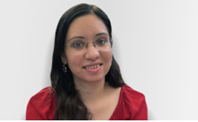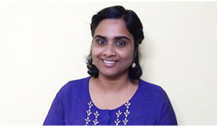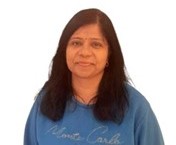
Last day to nominate: Sep 7, 2025
Course Objective
Donor management is how nonprofits keep and grow support from people and institutions that fund their work. It means knowing your donors, speaking to them clearly, choosing meaningful ways to engage, and reporting back with honesty and data that matters. Through interactive discussions, case examples, hands-on activities and office hours, the workshop participants will explore how to effectively manage their donors through segmentation, clear communication, practical engagement touchpoints, and effective donor reporting.
Course Outcomes
The Atma team will support the participants in developing an understanding of, and skills toward, the following.
- Designing a practical donor management strategy setting a clear purpose, priority segments, goals, timing, and a simple core narrative.
- Communicating clearly and credibly with donors: writing short, plain updates that show evidence and learning, choose the right channels and tone, and make a concrete ask.
- Planning engagement touchpoints and cadences: mapping a focused calendar of value-adding interactions with owners and simple follow-ups.
- Reporting back in simple, credible ways: sharing progress and learnings at the right time and in the right format.
- Building a long-term donor management system: moving beyond one-offs to habits, feedback loops and basic metrics that sustain renewals and upgrades.
Participants will receive practical tools, templates, resources, databases and linkages (where possible) to help implement their donor management strategies.
Participants will also have access to thought partnership and tailored inputs from Atma to help them develop their donor management plans.
Envisaged outcomes after the workshop are shared below.
- Increased understanding of how to segment, engage and retain donors.
- Increased confidence in designing and running effective donor engagement plans and cadences.
- Improved skills in clear donor communication, planning useful touchpoints, and handling difficult updates well.
- Improved organizational readiness to sustain donor relationships through basic roles, response guidelines, and light feedback and measurement.
Pre-requisites
- NGOs in the age group of 2-5 years
- Across sectors and geographies
- Who are keen and confident of working on capacity building for their organization in 2025-26 (high intent NGOs)
- This session is ideal for nonprofit fundraisers and leadership team members intent on developing their fundraising capacity
Expected Commitment
8-10 hours, per workshop
Course Details
- Pre-work: Reading or exercise material will be shared with all the participants. This will set them up for learning during the workshop, on the topic selected.
- Pre-survey: The pre-survey helps to gauge the knowledge, skills and confidence levels of the participants and their organizations before the workshop.
- Workshop: The key content on the topic so selected will be delivered in a 2-3-hour long workshop over two days (Nov 18 & 21).
- Office hours: The Atma team will be available for 4-5 hours of office hours' support on the two days following each half of the workshop. This will help in connecting with 4-5 NGOs, one-on-one, to thought partner and discuss the NGOs' donor management approach.
- Post-survey: The post-survey helps gauge the knowledge, skills and confidence levels of the participants and their organizations after the workshop. The difference between the same vs. the pre-survey is the incremental impact of the Atma workshop.
Facilitator(s):
- Aishwarya Menon (Chief Program Officer at Atma),
- Vaishali Janarthanan (Lead Consultant at Atma),
- Kavita Pandya (Lead Consultant at Atma),
- Rituparna Debroy (Lead Consultant at Atma)
About The Resource Organization
Atma is an Accelerator for NGOs in India. It builds NGOs' capacities by developing their knowledge and skills, and by setting up systems and processes in 10 organizational development areas. Atma's vision is that of a thriving Indian development sector, which enables NGOs to sustain and grow. The organization has worked with 1,000+ NGOs since 2007.(To learn more about Atma, please click here.)
| Phases | Module | Activity / Number of hours | Mode of delivery | Location |
|---|---|---|---|---|
| Phase 1 | Pre-work | Pre-survey: To understand where their current knowledge and understanding of the topics stand. | Online | Virtual |
| Pre-work: To make the participants reflect on their present state of capacity on the topic of the workshop. This will include readings and/or exercises. | ||||
| Phase 2 | Course work | Workshop sessions (2.5-3 hours x 2 days) - 18th and 21st Nov | Zoom | Virtual |
| Phase 3 | Feedback | End of day 1 | Zoom Platform | Virtual |
| End of day 2 | ||||
| Post-Survey- within one week of the workshop | ||||
| Phase 4 | Ongoing Support between /during the modules | The participating NGO is open to reach out to Atma. Atma is open to conducting online calls (maximum 5) with NGOs, on the two days following each session of the workshop. | - | Virtual |
| Phase 5 | Post-work | Six (6) months post workshop, we will do a check-in to gauge medium-term impact of the workshop in terms of changes made by the participants in their organizations. During this period, the NGOs will be encouraged to reach out to Atma for any support they need. | - | Virtual |
Facilitators

Aishwarya Menon
Aishwarya is the Chief Program Officer at Atma, where she leads the organization's program portfolio. This includes Atma's flagship programs, customized NGO partnerships, OD diagnostics, ecosystem-strengthening initiatives, and workshop offerings. Aishwarya holds a degree in Law from NALSAR University of Law, and a PGDM from IIIM Lucknow. She was part of the 2024-25 cohort of the Dasra Social Impact Leadership Program. After early stints in corporate law and FMCG sales, she chose to apply her skills to the development sector, supporting NGOs in building stronger systems and processes. With close to 11 years of experience across the corporate and nonprofit sectors, Aishwarya has worked closely with a wide range of Atma's partner organizations Her focus areas include organizational strategy, fundraising, human resources, and monitoring and evaluation.

Kavita Pandya
Kavita is working with Atma as a Lead Consultant, and leads its Accelerator Program. She has over 14 years of experience in the development sector in diverse roles. These include providing mentoring and capacity-building support to nonprofits and social enterprises, leading and executing programs, and building organizational processes. She has done her MBA in Human Resources. Previously, she has worked with EdelGive Foundation where she managed the corporate employee volunteering program, and with UnLtd India where she managed the Incubation Program, along with mentoring social entrepreneurs. She has also worked with different NGOs as a consultant. Her key skill areas include strategic planning, financial budgeting, impact measurement, process development, and human resources.

Vaishali Janarthanan
Vaishali Janarthanan is a Lead Consultant, Programs, at Atma. She has worked in the development sector for the past 11 years. She has a deep interest in law, caste and gender. Vaishali brings grassroots experience and learnings on issues of child rights, violence against women, and education. She holds a Masters in Education from TISS, Mumbai, and a degree in Law. At Atma, Vaishali leads the Future of Impact Collaborative's Common Minimum Program, and the TaRa AtmaNirbhar Grant Program.

Rituparna Debroy
Rituparna Debroy is a Lead Consultant, Programs, at Atma. She is a purpose-driven senior professional, with 20 years of cross-sector experience spanning corporate and development ecosystems. Rituparna brings expertise in strategic planning, stakeholder management, operational excellence, and impact assessment. She has held senior leadership roles at organizations such as the Times Group, and Buddy4Study India Foundation.
Testimonials
"The session on donor engagement and reporting was extremely insightful. It highlighted the importance of targeting a diverse donor base. It also provided practical strategies for doing so effectively. Further, we learnt about how organizational capacity on managing donor reporting is key to greater transparency and donor engagement." - Marissa Dunne, Vaani DCF (on a Donor Management Workshop, conducted by Atma)


